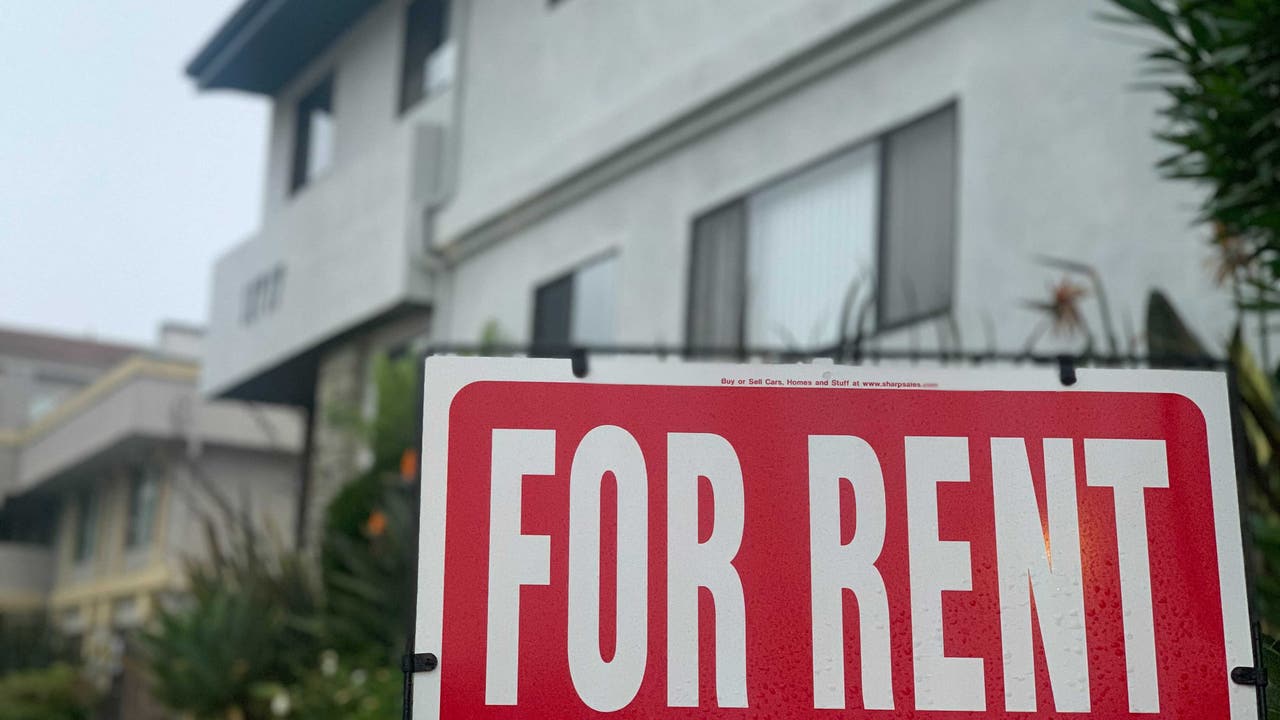Texas
Texas Developer Seeks $50 Million From Maui County To Build Affordable Housing

One of Maui’s largest affordable housing project in decades — one that could provide a new beginning for thousands of displaced Lahaina fire survivors — is awaiting action by the administration of Mayor Richard Bissen more than a month after the County Council requested expedited approvals.
The council passed a resolution last month on an 8-1 vote urging Bissen to fast-track permitting approvals, zoning changes to increase density and the appropriation of millions of dollars in public funds for the Pulelehua housing development north of Lahaina.
Located between Honoapiilani Highway and the Kapalua airport, Pulelehua is a 304-acre, 1,000-unit-plus project that Texas-based developer Paul Sau-Ki Cheng and his company Maui Oceanview LP want to rapidly scale up.

Cheng got $18 million from the county last year to subsidize 60 affordable housing units, constituting phase one of the Pulelehua project.
Crews are currently finishing up grading, grubbing and retaining wall work at the project site, according to an update the County Council received on Oct. 6.
Now Cheng is asking the county to grant him $50 million more from a new general excise tax surcharge that takes effect in January. The money would help expedite the project and fund infrastructure expenses like water and sewer lines, placing new power lines underground and grading.
If the money is approved, Cheng would get $30 million in fiscal year 2024 and $20 million the following year. In exchange, Cheng has agreed to convert most of his market-rate homes to affordable units and to prioritize fire survivors who lost their homes, kupuna and longtime Maui residents. He has also agreed to speed up the construction timeline from a 10-year build-out to having the entire project finished in under five years, with first units available in approximately 20 months, according to the project description.
Cheng has also said he would make 10 acres available for portable units that could be stood up for short-term emergency housing by the Federal Emergency Management Agency.
The Dallas developer has a limited track record in Hawaii. He owns Maalaea Harbor Shops, a retail and restaurant complex in West Maui that he bought in 2015 for $13.4 million.


The following year, Cheng purchased the Pulelehua land from Maui Land and Pineapple Company for $15 million, according to a Securities and Exchange Commission filing.
Pulelehua, which means butterfly in Olelo Hawaii, has undergone various design iterations over the years. But it’s long been intended for working-class and moderate-income individuals and families on Maui where the average price of a home was nearly $1.3 million in October, according to the Realtors Association of Maui. The Aug. 8 fire destroyed or severely damaged nearly 3,500 Lahaina homes, exacerbating the island’s existing housing crisis.
When Maui Land and Pineapple owned the Pulelehua property, the company planned to create a workforce housing development as well as homes for middle-class buyers. Pulelehua was intended “to meet the acute need for quality affordable housing in West Maui and offering it to our employees and other working families of Maui,” according to the company’s website.
ML&P envisioned making half of the units affordable, eligible to people making 80% to 160% of area median income. The company promised to take “strict measures to prevent speculation from displacing the long-term availability of moderately priced housing for people who work in West Maui.”
But ML&P sold the property to Cheng before the development got built.
Cheng initially planned to construct 800 units in three phases over a decade or more. The development would include a mix of for-sale homes and rental units, half at market rate and half at affordable prices.


His plans changed after the County Council took up ordinances last year to spur the construction of affordable housing on Maui. Bills 107 and 111 aimed respectively to decrease the cost of affordable homes by 22% and to prioritize applicants based on their length of residency on Maui.
Bill 107 passed. Former Mayor Mike Victorino vetoed the latter, though, in part over concerns that the residency requirements might conflict with federal law. The council failed to override the veto.
But the legislative push for more affordable housing, combined with the Aug. 8 wildfire that displaced thousands of Lahaina residents, prompted Cheng to rethink his plans for Pulelehua, his Maui-based consultants, Kai Nishiki and Sarah Pajimola, said by email.


Cheng’s latest plan is to make the entire development 100% affordable. He wants to build 1,098 rentals and 60 affordable homes. But the exact configuration is contingent on getting county approval for the increased density that the newly redesigned subdivision would need, and it would also require a multimillion-dollar subsidy.
While Cheng has asked for $50 million to be paid out as he meets project milestones, he’s in talks with the Bissen administration and he might end up seeking a lower amount in exchange for access to county water or other incentives, or a loan rather than a grant, Nishiki said in a phone call.
“In all our time, we have never seen a developer be as flexible or responsive to changing needs and requests from departments, council members, community advocates, the general public,” the two said by email.
When requests are made, Cheng amends the project accordingly, they said.
“It’s been very refreshing to observe, and provides a lot of hope for the future, if this were to become the norm,” said Nishiki and Pajimola, co-executive directors of Maui Nui Resiliency Hui, a nonprofit that focuses on affordable housing, food security, shoreline access and other issues. The hui has submitted written testimony in support of the project.
Pajimola is former chief strategist to County Council member Keani Rawlins-Fernandez. She previously served as executive assistant to former County Council member Elle Cochran, now a member of the state House of Representatives for District 14, which includes Lahaina and other parts of West Maui. Pajimola’s online bio says she worked for Maui County for 15 years as an executive assistant, legislative analyst, chief of staff and as chief strategist under four council members representing South Maui, West Maui and Molokai.
Nishiki is a longtime community activist and organizer who has focused on shoreline access, climate change adaptation, injection wells and clean water issues, among other subjects.
At an Oct. 6 County Council meeting, most members said they fully support the Pulelehua project.
“There’s a lot of hope in this resolution,” said Presiding Officer Pro Tempore Tasha Kama, head of the Housing and Land Use Committee.
Council member Nohelani U’u-Hodgins asked Nishiki, who testified at the meeting, a slew of questions about cost-per-square foot, water availability, prevailing wage agreements for workers hired to build the homes and zoning issues.


She struck a provision from the resolution that said Pulelehua had already met zoning conditions. But in the end, U’u-Hodgins said she supported the project because the need for affordable housing is so great, especially after the fires.
“I’m afraid of the shockwaves that are coming where we lose our economy, we lose our people, because we have no housing,” she said. “Fifty million is a lot of money but we are going to have to invest in ourselves, invest in our people, so that we can keep our people here.”
Council Chair Alice Lee said in an interview that with nearly 7,000 fire survivors still remaining in Maui hotel rooms, the need for temporary and permanent housing is dire.
“I feel a sense of urgency. I hope that the administration also feels a sense of urgency,” Lee said.


Maui County’s director and deputy director of housing and human concerns did not respond to interview requests.
Vice Chair Yuki Lei Sugimura was the lone council member to vote against the Pulelehua resolution. The Upcountry representative expressed reservations about using $50 million from the general excise tax surcharge that the county doesn’t start collecting until next year.
“It’s not like we have it today in the bank,” Sugimura said.
She cautioned that Maui’s economy is troubled because the island’s main economic engine, tourism, is hobbled since the fires.
Moody’s Analytics, a risk modeling firm, has estimated the economic toll from the fire at between $4 billion and $6 billion. Maui County is projecting a $31.2 million budget shortfall due to the fires, with over half of that coming from lost property taxes from homes that burned.
“We have severe economic times ahead,” said Sugimura, who chairs the council’s Budget, Finance and Economic Development Committee.
Civil Beat’s coverage of Maui County is supported in part by grants from the Nuestro Futuro Foundation.

Sign up for our FREE morning newsletter and face each day more informed.

Texas
Bandera Texas Ranches Now on the Market

Texas
Dinner at Dallas restaurant becomes holiday tradition for North Texas families

Holiday traditions run the gamut in North Texas. For some, it means a yearly dinner at a popular Dallas Chinese restaurant. But not just any dinner. These are gatherings reserved months in advance. And Wednesday’s festivities just happened to fall on Christmas day and the start of Hanukkah.
Ask April Kao when they plan to close the Royal China restaurant for the night, and she’ll tell you simply whenever the last person leaves. It’s what she’s grown accustomed to. When the hustle and bustle of the holiday season, with all its excitement and frenzy, comes breezing through the front door of the Royal China restaurant off Preston Road and Royal Lane.
Kao and her husband George, both owners of the restaurant, said opening on December 25 was never part of the original business plan.
“We didn’t used to open on Christmas day,” she said. “And in 2008 after the renovation, people begged and begged, ‘Please you have to open.’”
So, they did, and there’s been a massive turnout ever since. People from surrounding neighborhoods in North Dallas and people from different faith communities rely on Royal China.
“Before we open the door, we have lines outside and it’s getting busier and busier. So we take reservations a year before,” Kao said.
One Dallas family made reservations during the summer just to be sure their 15-year tradition wouldn’t miss a beat.
“My son-in-law, Berry, was the one who first suggested that we come to a Chinese restaurant on Christmas day,” said Lynn Harnden. “And we make our reservations like in July to be sure to come.”
As the years pass, seats are added to the reservation. This year, the Hardens occupied two tables with seventeen guests.
As for upholding family traditions, the Kaos have their own wall of memories at the restaurant. It’s a reminder of how far they’ve come from 1974, when George Kao’s father came from Taiwan with a dream and a plan.
“He is very proud,” he said. “He would smile. He’s smiling from above.”
Texas
Pleasant Christmas weather for North Texas before storms return Thursday

Watch CBS News
Be the first to know
Get browser notifications for breaking news, live events, and exclusive reporting.
-
/cdn.vox-cdn.com/uploads/chorus_asset/file/24924653/236780_Google_AntiTrust_Trial_Custom_Art_CVirginia__0003_1.png)
/cdn.vox-cdn.com/uploads/chorus_asset/file/24924653/236780_Google_AntiTrust_Trial_Custom_Art_CVirginia__0003_1.png) Technology5 days ago
Technology5 days agoGoogle’s counteroffer to the government trying to break it up is unbundling Android apps
-

 News6 days ago
News6 days agoNovo Nordisk shares tumble as weight-loss drug trial data disappoints
-

 Politics6 days ago
Politics6 days agoIllegal immigrant sexually abused child in the U.S. after being removed from the country five times
-

 Entertainment7 days ago
Entertainment7 days ago'It's a little holiday gift': Inside the Weeknd's free Santa Monica show for his biggest fans
-

 Lifestyle6 days ago
Lifestyle6 days agoThink you can't dance? Get up and try these tips in our comic. We dare you!
-

 Technology1 week ago
Technology1 week agoFox News AI Newsletter: OpenAI responds to Elon Musk's lawsuit
-
/cdn.vox-cdn.com/uploads/chorus_asset/file/25672934/Metaphor_Key_Art_Horizontal.png)
/cdn.vox-cdn.com/uploads/chorus_asset/file/25672934/Metaphor_Key_Art_Horizontal.png) Technology2 days ago
Technology2 days agoThere’s a reason Metaphor: ReFantanzio’s battle music sounds as cool as it does
-

 News3 days ago
News3 days agoFrance’s new premier selects Eric Lombard as finance minister



















